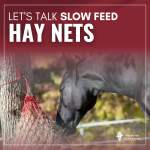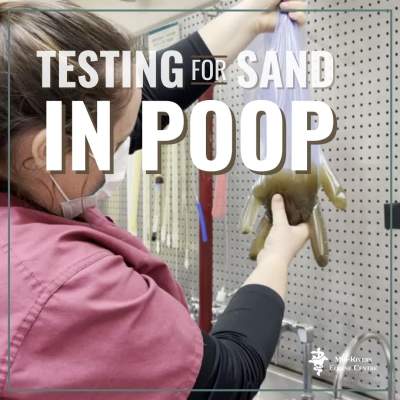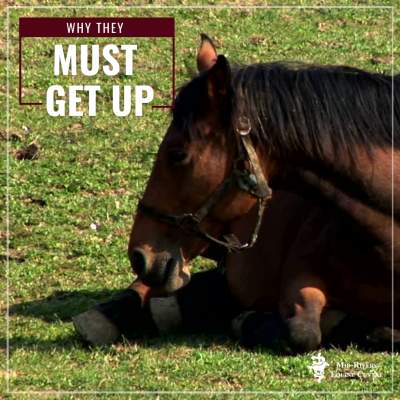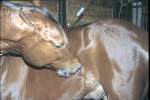
Slow Feed Hay Nets: The Pros and Cons of Feeding
CLIENT QUESTION: Let’s talk slow feed hay nets. It seems to be the latest and greatest toy for the equine community. What ...

How To Test For Sand In Horse Manure
Sand, or tiny rocks, caught in the large intestine, can cause irritation, colic, or complete obstruction. Horses feed on the ground in ...

Why Must A Down Horse Get Up Quickly ?
Have you ever wondered why caregivers encourage a down horse to get back up quickly? When a horse goes down, regardless of ...

Bonded Horses… What To Do In An Emergency
Should you have a pair of bonded horses, a medical emergency requiring the overly attached equines to separate could bring you double ...

Colic: Tubing With Electrolytes
Why would a veterinarian use an electrolyte solution to tube a horse that is suffering from colic? It draws water into the ...

Is My Horse A Candidate For Colic Surgery?
Click to Enlarge A horse may be on the path to colic surgery if it: Has an elevated heart rate Has an ...

Types of Equine Colic
There are many types of colic that a horse can develop, from minor to fatal, some of which include: Displacement or “Twisted ...

The Does and Don’ts of Managing Colic РWhat to do before the veterinarian arrives.
When a horse colics, it is a stressful time for both owner and horse. Knowing what information your veterinarian will need, and ...

Symptoms of Horse Colic
It is important to recognize the signs and symptoms of horse colic. In some cases, the symptoms are mild and barely noticeable ...

Equine Colic
Colic in horses is generally described as abdominal pain that originates in the gastrointestinal system. Equine colic can range in both cause ...